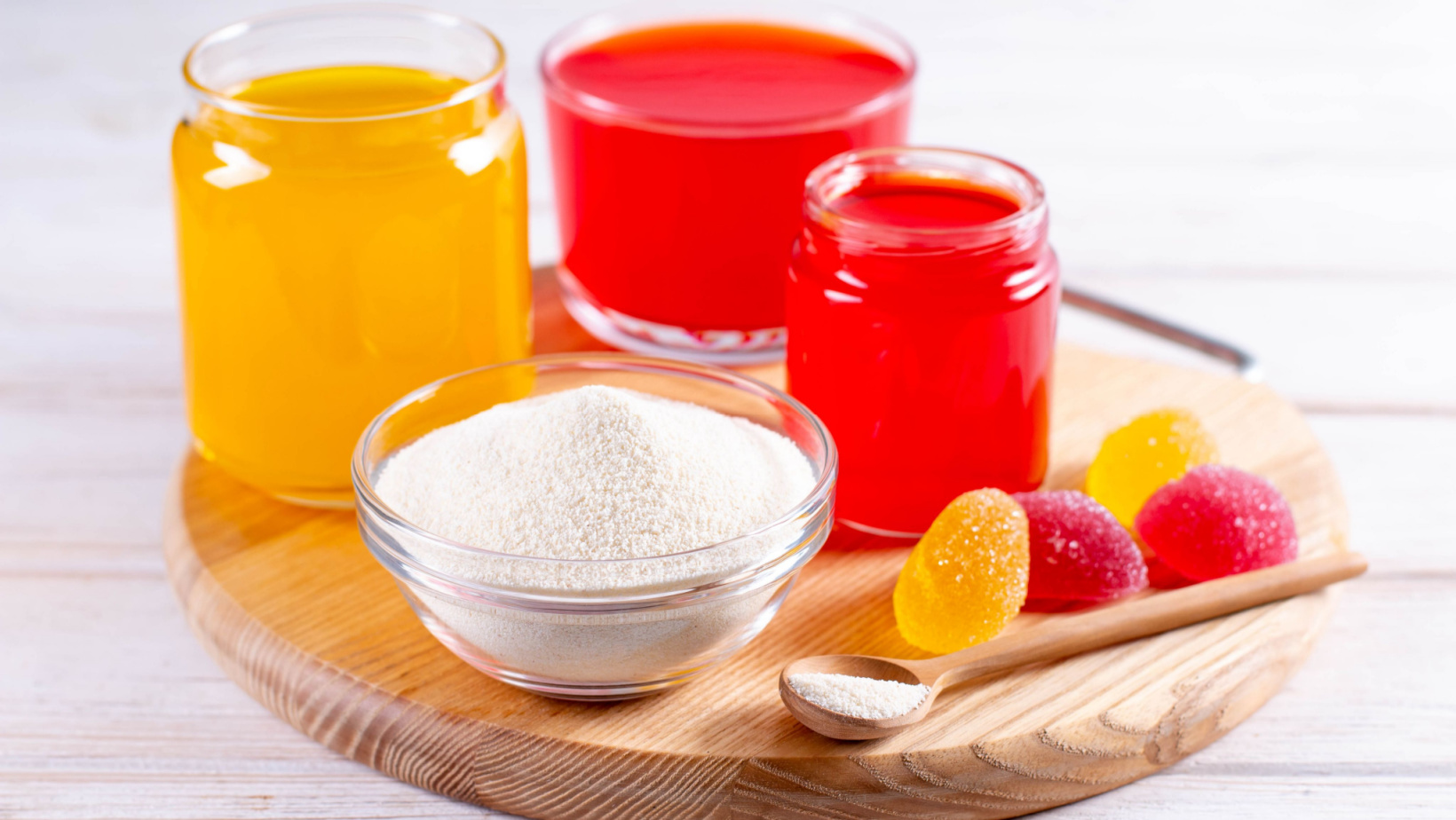Table Of Contents
| 1. Pectin |
| 2. Calcium |
| 3. Sugar Substitutes |
| 4. Culinary Acids |
| 5. Flavor Drops |
| 6. Emulsifiers |
| 7. More Gummy Course Content |
Pectin
Pectin consists of a complex set of polysaccharides that are present in most primary cell walls of plants. Most commercially available pectin is extracted from citrus fruits. The main use for pectin is as a gelling agent, thickening agent and stabilizer in food. The classical application is giving the jelly-like consistency to jams or marmalades, which would otherwise be sweet juices. Pectin can also be used to stabilize acidic protein drinks, such as drinking yogurt, and as a fat substitute in baked goods.
Slow Set High Methoxyl (HM) Pectin
Slow Set High Methoxyl Pectin works best at pH from 2.8 to 3.2. It forms gels more slowly which prevents premature gelation and facilitates filling of large scale jam and jelly batches.
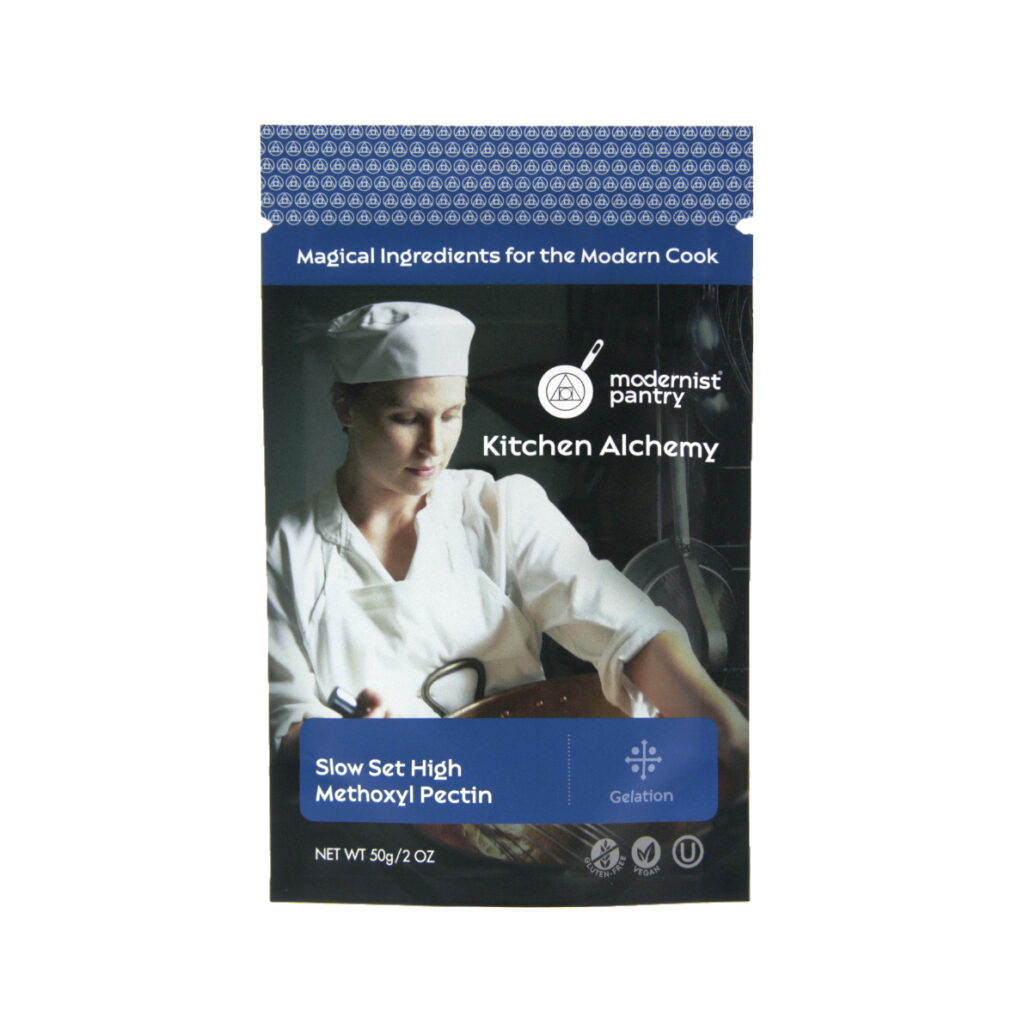
Slow Set High Methoxyl (HM) Pectin
- Sourced from citrus peels
- Best used in high sugar jams and jellies, yogurt drinks
- Gels slowly for larger batches and commercial production
- Acts as a natural stabilizer and geling agent
- Cold water soluble, heat to gel
- *Commercial sizes require 1-2 day of processing time
Rapid Set High Methoxyl (HM) Pectin
Rapid Set High Methoxyl Pectin works best at pH from 3.2 to 3.3. It forms gels quickly so best used in production of jams and jellies in small containers.
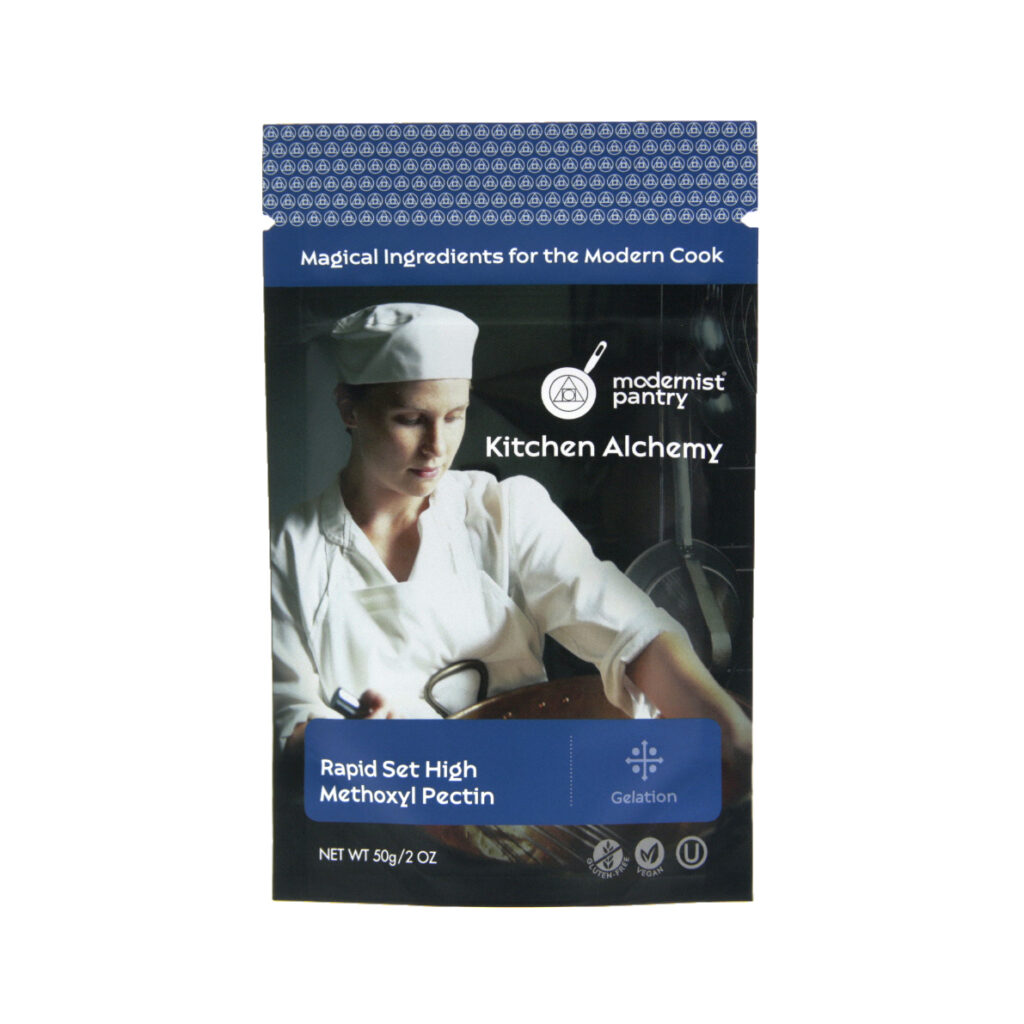
Rapid Set High Methoxyl (HM) Pectin
- Sourced from citrus peels
- Best used in most high sugar jams and jellies
- The right choice for home-made jams, jellies and preserves
- Acts as a natural stabilizer and geling agent
- Cold water soluble, heat to gel
Low Methoxyl (LM) Pectin
Low Methoxyl Pectin works best at pH from 2.8 to 6.5. It sets at 50 to 70C (depending upon calcium present: about 30-50 mg of calcium per gram of Pectin). LM Pectin is synergistic with Locust Bean Gum. It is typically used in low calorie jellies with lower sugar content.
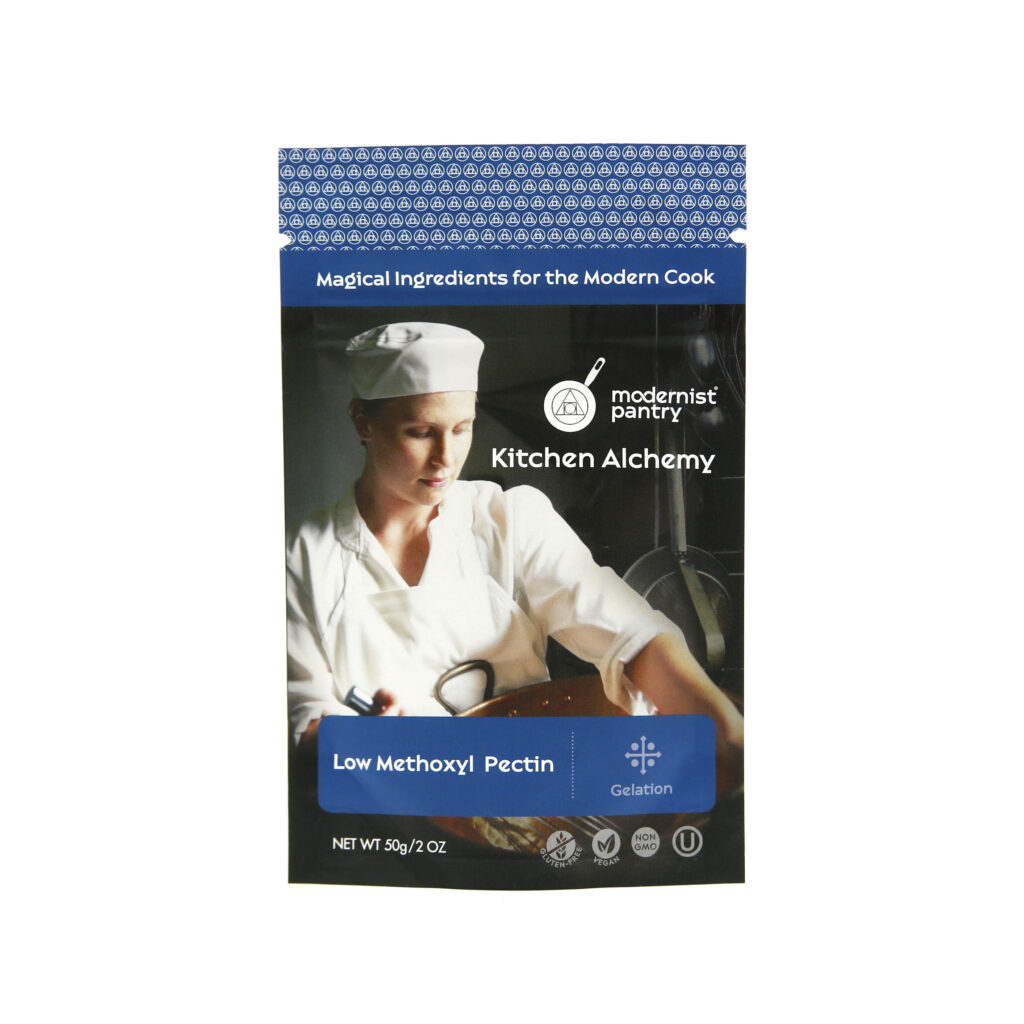
Low Methoxyl (LM) Pectin
- Sourced from citrus peels
- Best used in low sugar jams and jellies, yogurt fruit preparations
- Acts as a natural stabilizer and geling agent
- Cold water soluble, gels in the presence of calcium
Amidated Low Methoxyl (LM) Pectin
Amidated Low Methoxyl Pectin works best at pH of 3.2 – 3.6. It sets at 40 to 70C (depending upon calcium present: requires only 10 – 30 mg of calcium per gram of Pectin). LMA Pectin is synergistic with Locust Bean Gum. It is typically used in low calorie jellies with lower sugar content, drinkable gels and gelatin-type desserts.
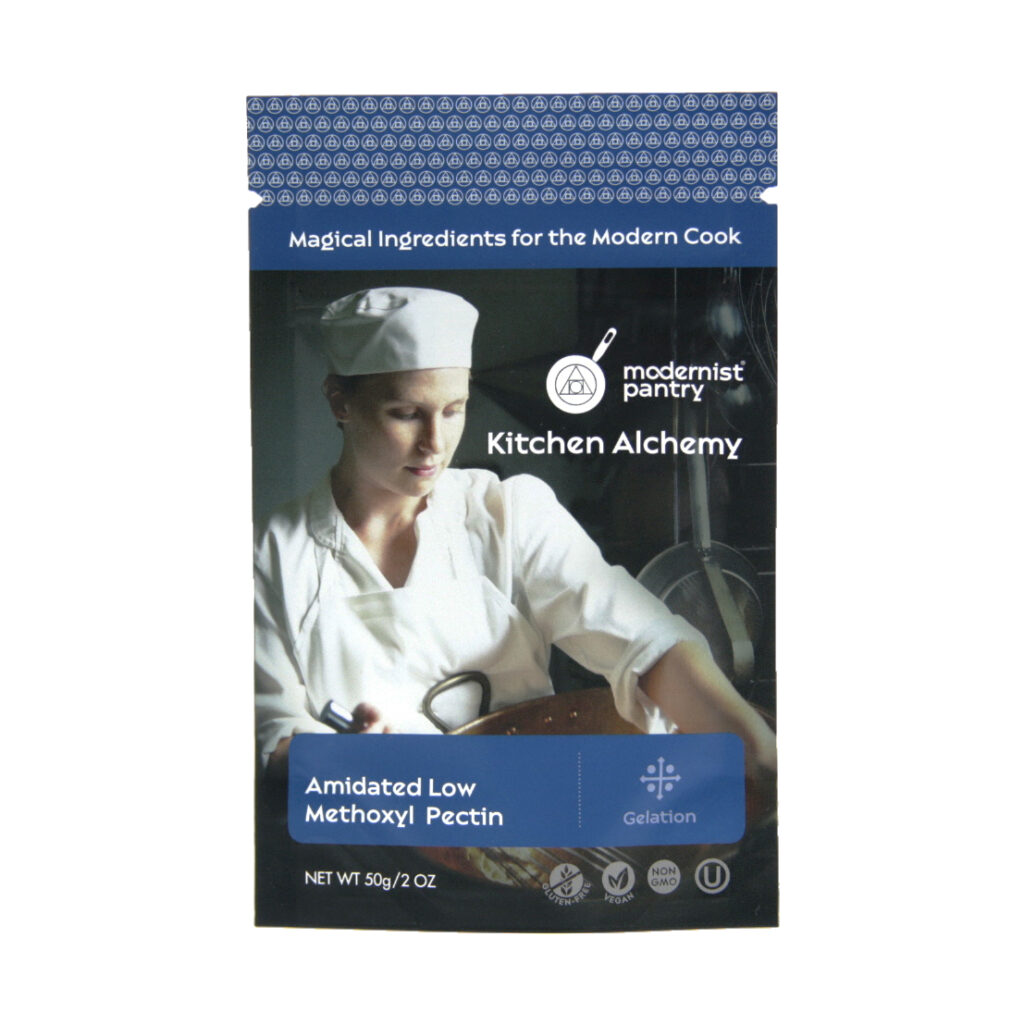
Amidated Low Methoxyl (LM) Pectin
- Sourced from citrus peels
- Best used in low sugar jams and jellies, yogurt drinks
- Needs very little calcium to gel
- Acts as a natural stabilizer and geling agent
- Cold water soluble, gels in the presence of calcium
NH Pectin
Pectin NH is a thickener primarily used for preparing glazes for fruits tarts and pastries. Pectin NH is thermally reversible – it can be set, re-melted, and set again. NH Pectin is pre-blended with calcium and does not require a separate calcium source.
When replacing LM pectin in a sugar free gummy recipe follow the steps below
Pectin NH already has the necessary calcium for it to gel. The issues you may encounter with this are that the pectin will gel before the sugars can be completely heated. The issue that happens here is the pectin gel will burn before the mixture can reach the correct temperature. If you are fine with having a soft Pate de fruit texture then you can absolutely use Pectin NH. If you prefer a chew sugar-free gummy then avoid using Pectin NH
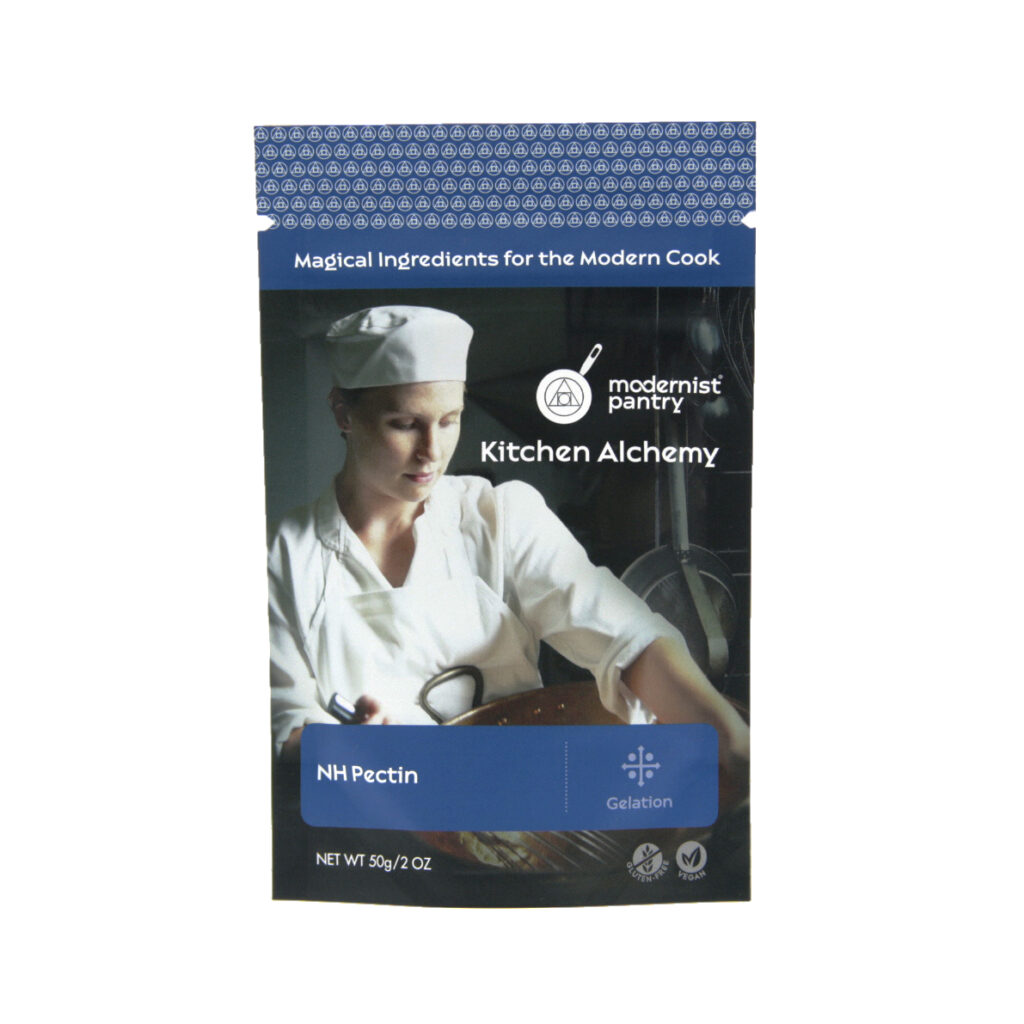
NH Pectin
- Unique blend of pectin and calcium
- Forms thermoreversible gels
- Makes beautiful nappage and glazes
- Creates twistable chocolate
- No additional calcium needed for gelling
Calcium
Calcium Lactate Gluconate
Calcium Lactate Gluconate (E327 + E578) is a calcium-rich product and is perfect for reverse spherification (dipped in sodium alginate bath), and low/no sugar jams and gummies without adding any flavor at all to the end product. It is soluble in cold liquids and can be used with acidic, high alcohol, or fatty mediums.
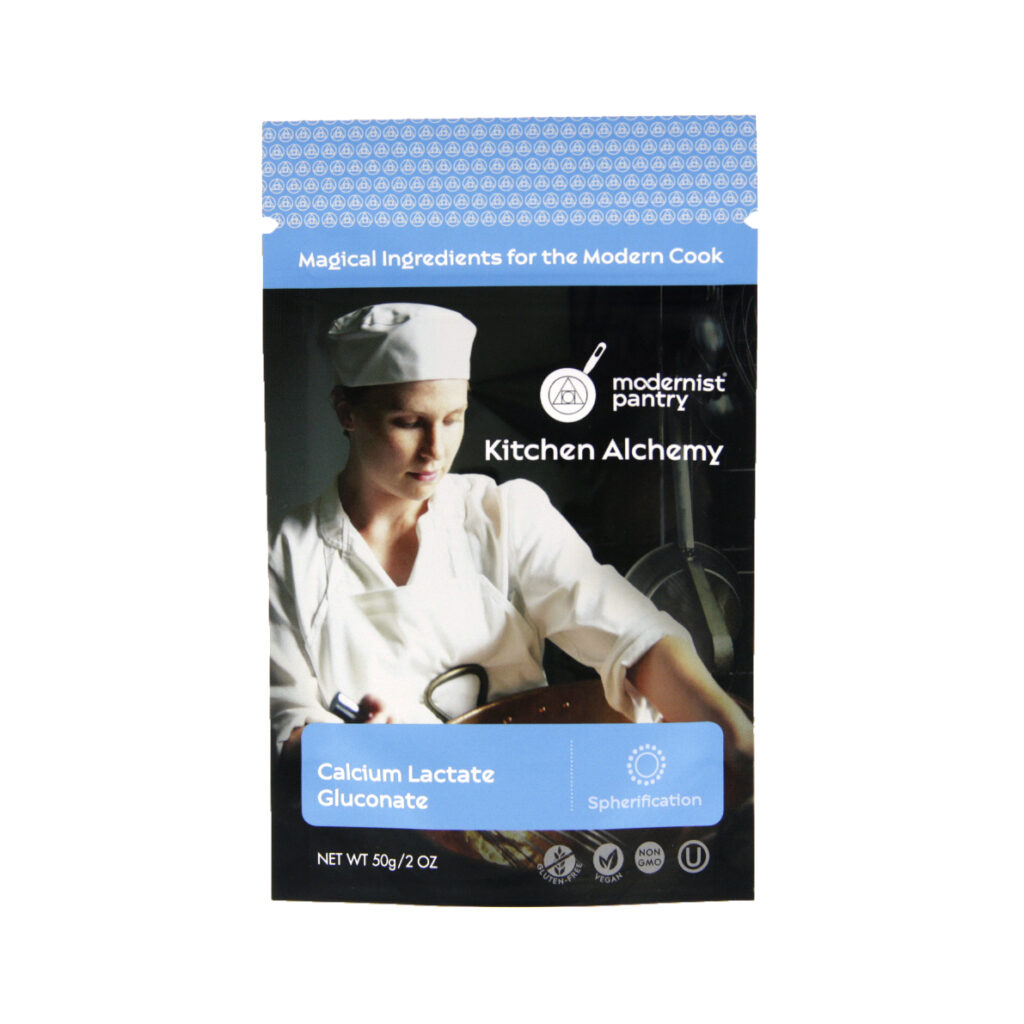
Calcium Lactate Gluconate
- Free-flowing mixture of calcium lactate and calcium gluconate
- Tasteless and odorless calcium ideal for Reverse Spherification technique to create popping caviar and raviolis
- Perfect for adding calcium to low sugar jams and marmalades
- Cold/hot soluble, non-hygroscopic
Sugar Substitutes
Glucose DE 42
Glucose DE 42 Powder is about 40-45% as sweet as sucrose (table sugar). It has a dextrose equivalent (DE) of 42. Glucose DE 42 resists crystallization significantly better than sucrose or higher DE glucose. To reconstitute Glucose DE 42 powder into Glucose DE 42 Syrup, use a ratio of 80.5% Glucose DE 42 to 19.5% water by weight. Whisk constantly over low heat until dissolved, do not bring to a boil. Glucose DE 42 is not suitable in completely sugar-free recipes.
How to replace sugar in a gummy using DE42
Glucose DE 42 and syrup made from DE 42 can be used to prevent crystallization by replacing a portion of the sugar in both gelatin and pectin gummies. Glucose DE42 has less than half the perceived sweetness of table sugar. This means adding it to a gummy recipe will reduce the relative sweetness.
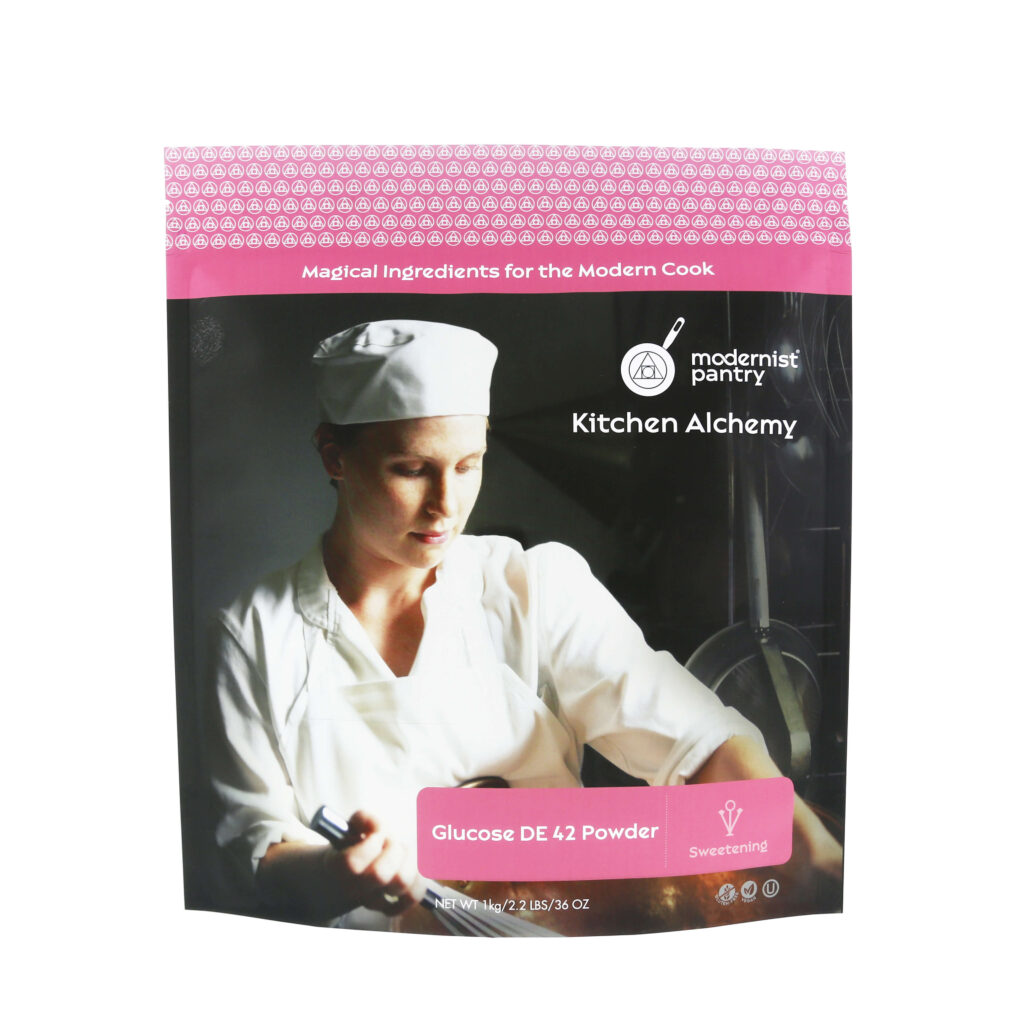
Glucose DE42
- Sourced from corn
- Approximately 40-45% as sweet as sugar
- Reconstitute into Glucose DE 42 syrup
- Use in baked goods and candies to prevent crystal formation
Sorbitol
Sorbitol is a corn derived sugar alcohol that is 60% as sweet as sugar. It is used in many sugar free, low calorie and diabetic products. Sorbitol will not brown or caramelize like sucrose.
Replacing sugar in a pectin gummy
Sorbitol should only be used when making a pectin gummy using Low Methoxyl (LM) Pectin. It will not be effective when using High Methoxyl (HM) pectin. We prefer a mixture of 70% sorbitol and 30% xylitol for the best flavor. As with all the sugar substitutes sorbitol may need to be scaled up slightly to achieve the same sweetness as table sugar.
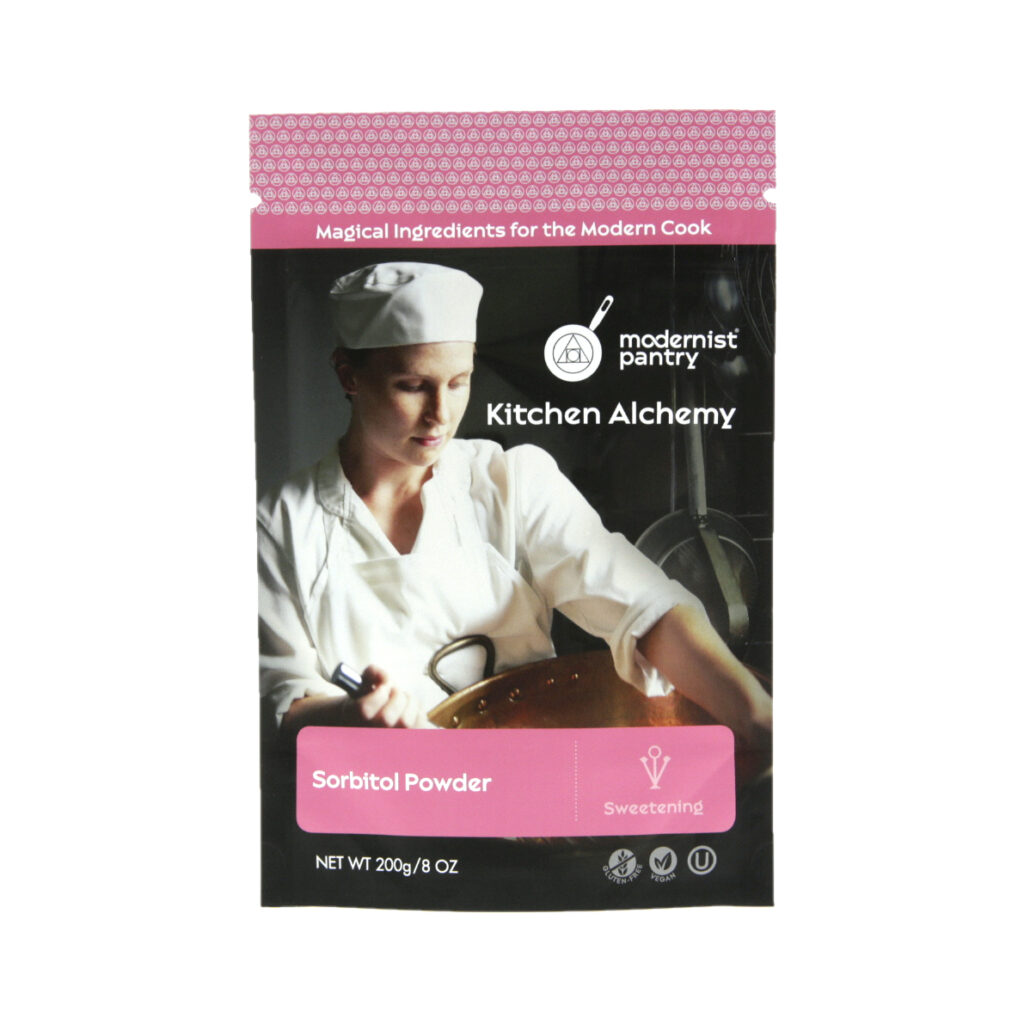
Sorbitol
- Sugar substitute sourced from corn
- 60% as sweet as sugar
- Popular in many gummy recipes
- Suitable for sugar free, low calories, and low glycemic index products
- Will not brown or caramelize
Xylitol
Xylitol is a sugar alcohol used for sweetening confections and other food products. It has no calories, making it a useful sweetener for diet foods. Xylitol has little to no effect on blood sugar and insulin and does not influence blood sugar levels.
Replacing sugar in a pectin gummy
Xylitol should only be used when making a pectin gummy using Low Methoxyl (LM) Pectin. It will not be effective when using High Methoxyl (HM) pectin. We prefer a mixture of 70% sorbitol and 30% xylitol for the best flavor. As with all the sugar substitutes sorbitol may need to be scaled up slightly to achieve the same sweetness as table sugar.
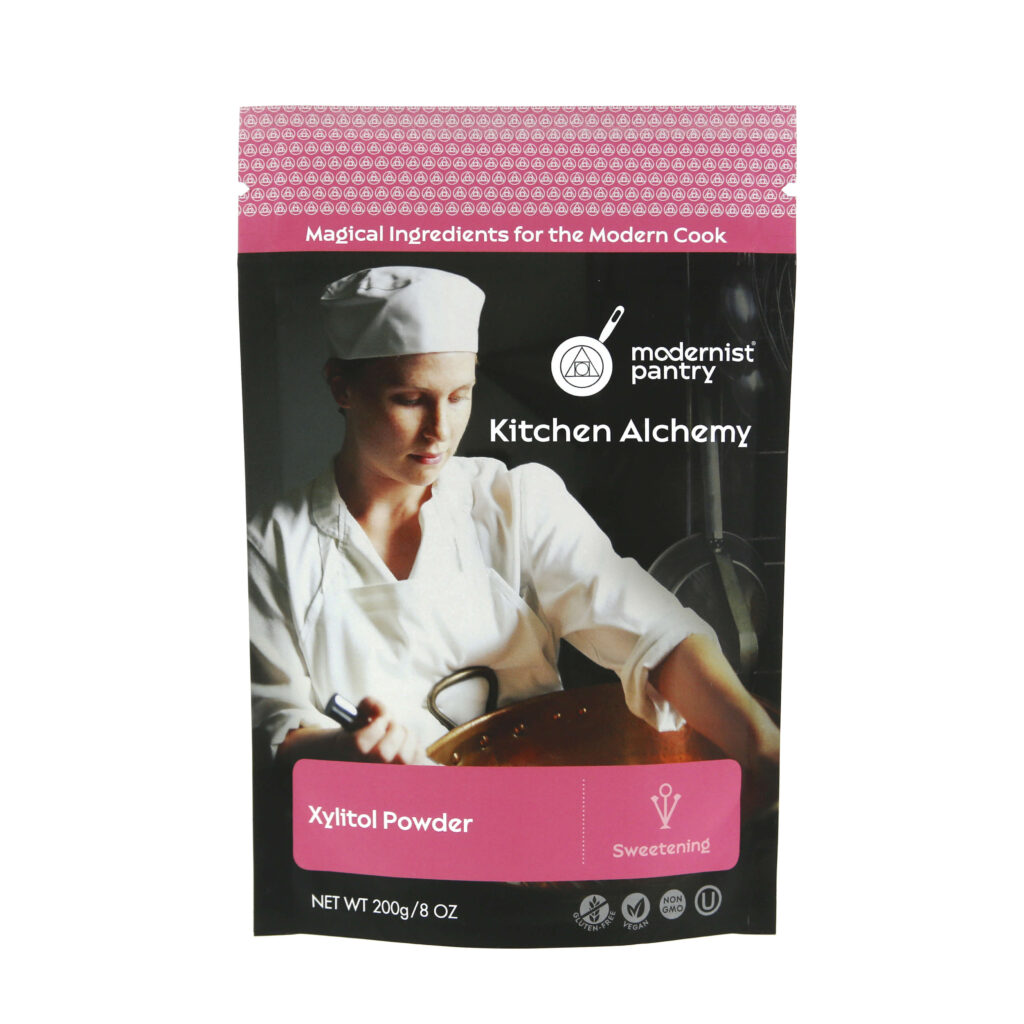
Xylitol
- Sugar substitute sourced from corn
- Similar sweetness to sugar
- Suitable for sugar free, low calories, and low glycemic index products
- Will not brown or caramelize, great for preventing crystallization
Isomalt
Isomalt is a natural sweetener and an excellent sugar substitute made from beet sugar. It provides the taste, texture and half the calories of sugar. It has sugar-like physical properties, can be used in a 1:1 ratio for granulated sugar, and provides the taste, texture and half the calories of sugar. Isomalt is a low digestible carbohydrate and may be suitable for individuals needing to control their blood glucose and insulin levels, or for lower calorie, healthier recipe alternatives.
How to replace sugar in any gummy recipe using isomalt
Isomalt can replace sugar in any gummy recipe one for one. It will create a gummy with reduced sweetness.

Isomalt
- Sugar substitute from sugar beets
- Widely used in sugar pulling and casting for cake decoration
- 50% as sweet as sugar
- High shine, does not crystallize like sugar
- Medium-sized granules, slightly hygroscopic
Culinary Acids
Citric Acid
100% Pure Citric Acid (e330) is a weak organic acid. It is a natural preservative/conservative and is also used to add an acidic, or sour, taste to foods and soft drinks. Citric acid exists in a variety of fruits and vegetables, most notably citrus fruits like lemons and limes. It can be added to ice cream as an emulsifying agent to keep fats from separating, to caramels to prevent sucrose crystallization, or to recipes in place of fresh lemon juice. Citric acid is commonly employed in wine production as a substitute or improver where fruits containing little or no natural acidity are used. It is one of several acids used by home brewers to modify brewing water for making beer. Additionally, citric acid is used as the main ripening agent in the first steps of making ricotta and mozzarella cheese.
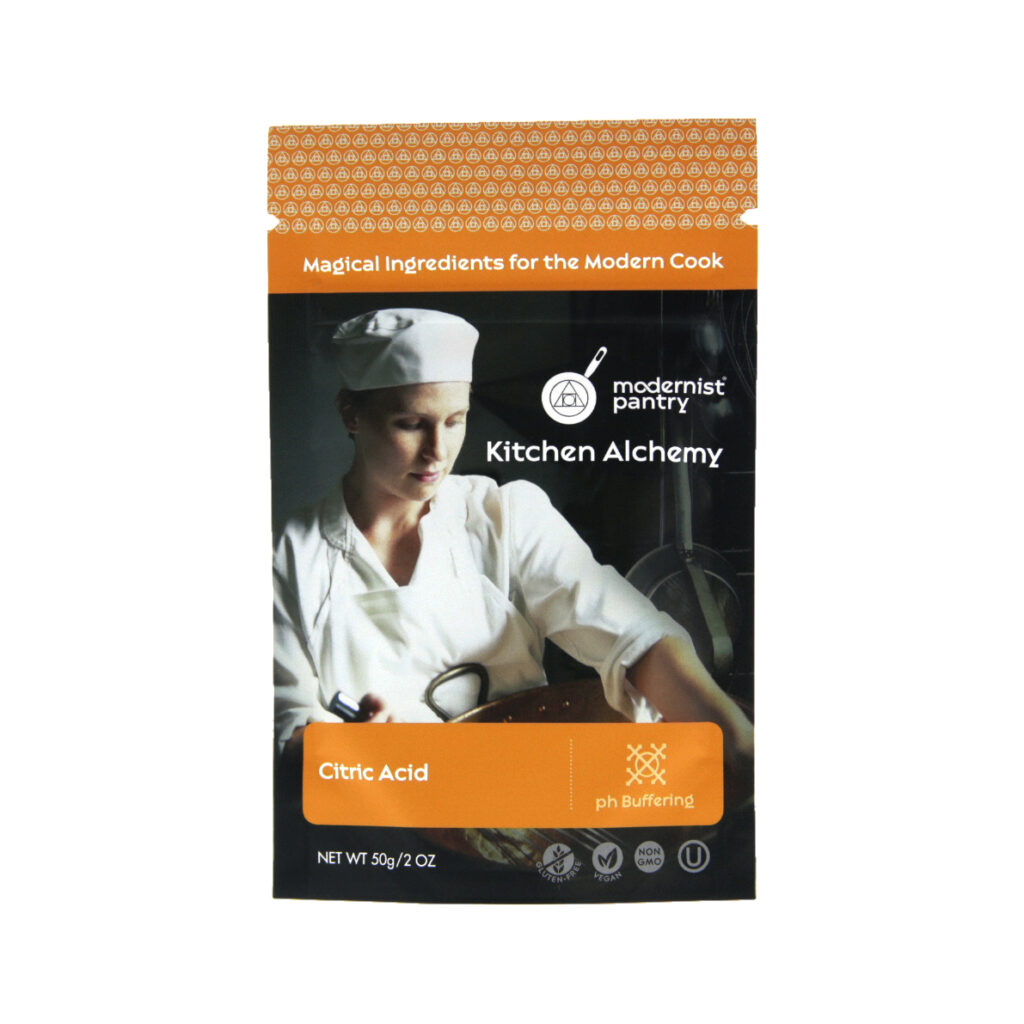
Citric Acid
- Anhydrous citric acid has a sharp, clean flavor
- Great for home-made cheeses and quick pickles
- Adds acidity without flavor where needed
- Acts as a flavor enhancer and sequestrant in food and beverages
- Cold/hot soluble in water
Malic Acid
100% Pure Malic Acid (e296) is an organic compound, which is the active ingredient in many sour or tart foods. In nature malic acid is present in large concentration on the apple skin and in a wide range of fruit and vegetable products, including plums, tomatoes, currant berries, bananas. In addition to being an acid regulator, malic acid is added to foods to give them a richer and more penetrating aroma. It is more tart than either ascorbic or citric acid.
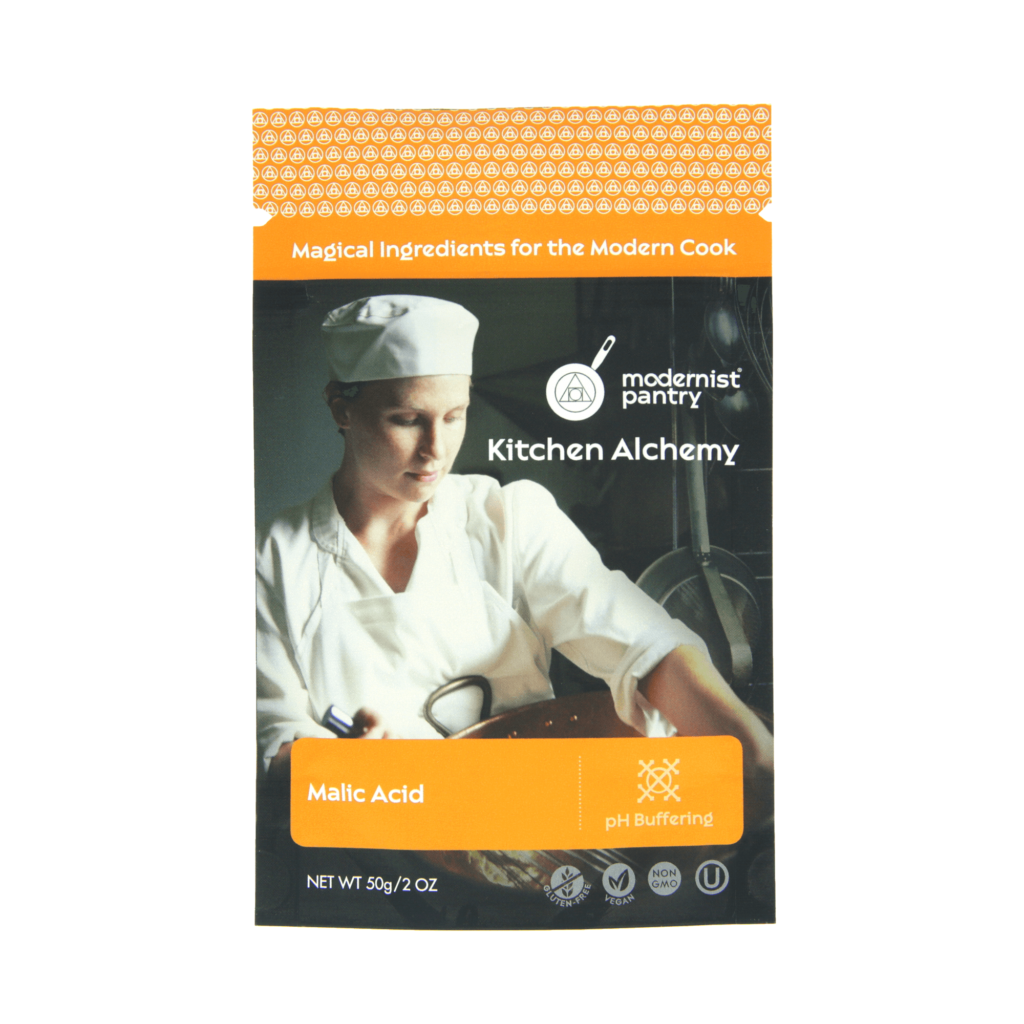
Malic Acid
- Commonly referred to as ‘fruit acid’ or ‘apple acid’
- Frequently used as an additive in beverages, bakery products, confectionaries, desserts, and as a preservative
- Can be added to foods to give them a richer aroma
- Provides a sharp, clean, acidic flavor
Tartaric Acid
100% Pure Tartaric Acid (e334) is a white crystalline organic acid. It occurs naturally in many plants, particularly grapes, bananas, and tamarinds; is commonly combined with baking soda to function as a leavening agent in recipes, and is one of the main acids found in wine. It is added to other foods to give a sour taste, and is used as an antioxidant.
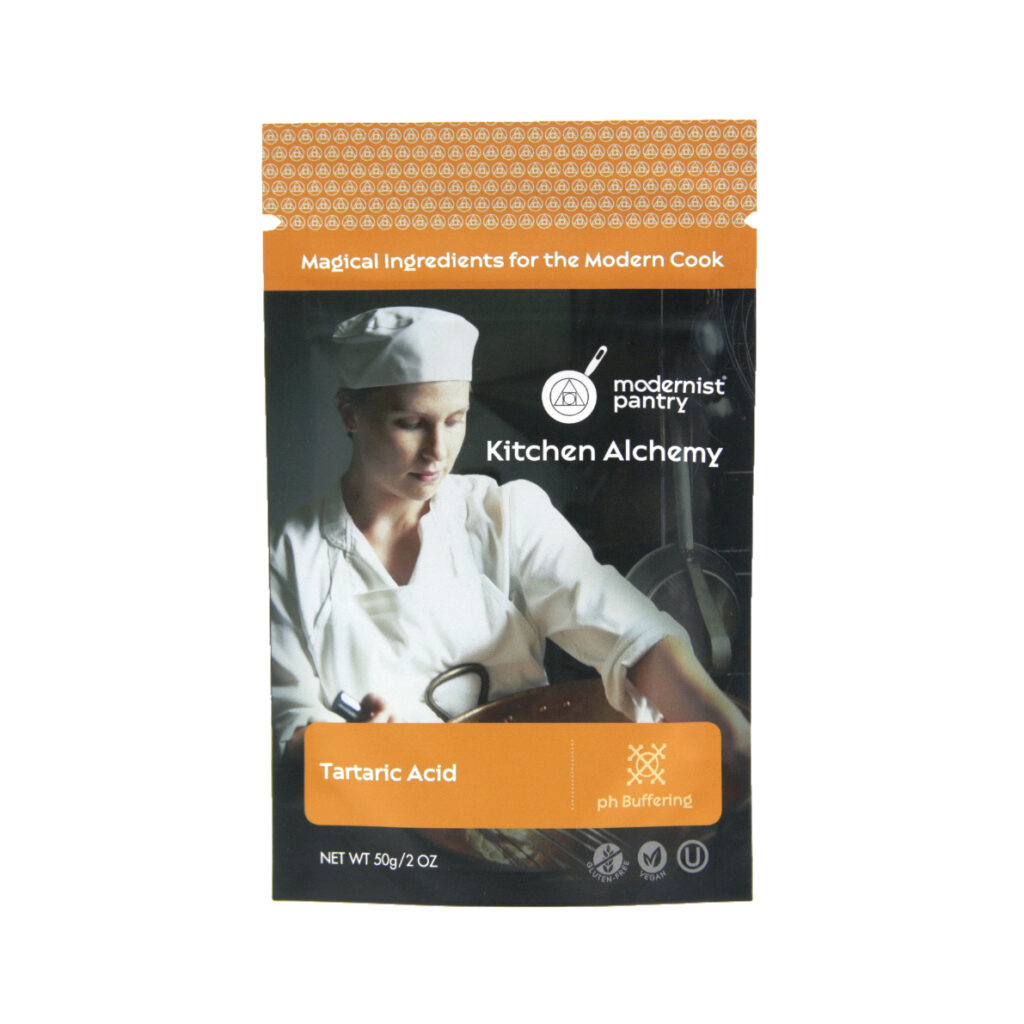
Tartaric Acid
- Sourced from grapes
- Frequently used in candies, gummies
- Useful for general promotion of acidity
- Provides a sharp, clean, acidic flavor
Flavor Drops
Culinary Crystals flavors are super strength flavoring extracts (5x stronger than grocery store extracts). They are part of our Savor System and used with the Culinary Crystals Flavor Base to create flavored carbonated candy. Their flavor is so concentrated, only 2 to 3 drops are required per ounce of candy. In addition, these flavorings can be used for a wide variety of other applications including other hard candy, gourmet chocolate, fudge, frosting, fondant, coffee, tea, home-made soda, and vitamin waters.
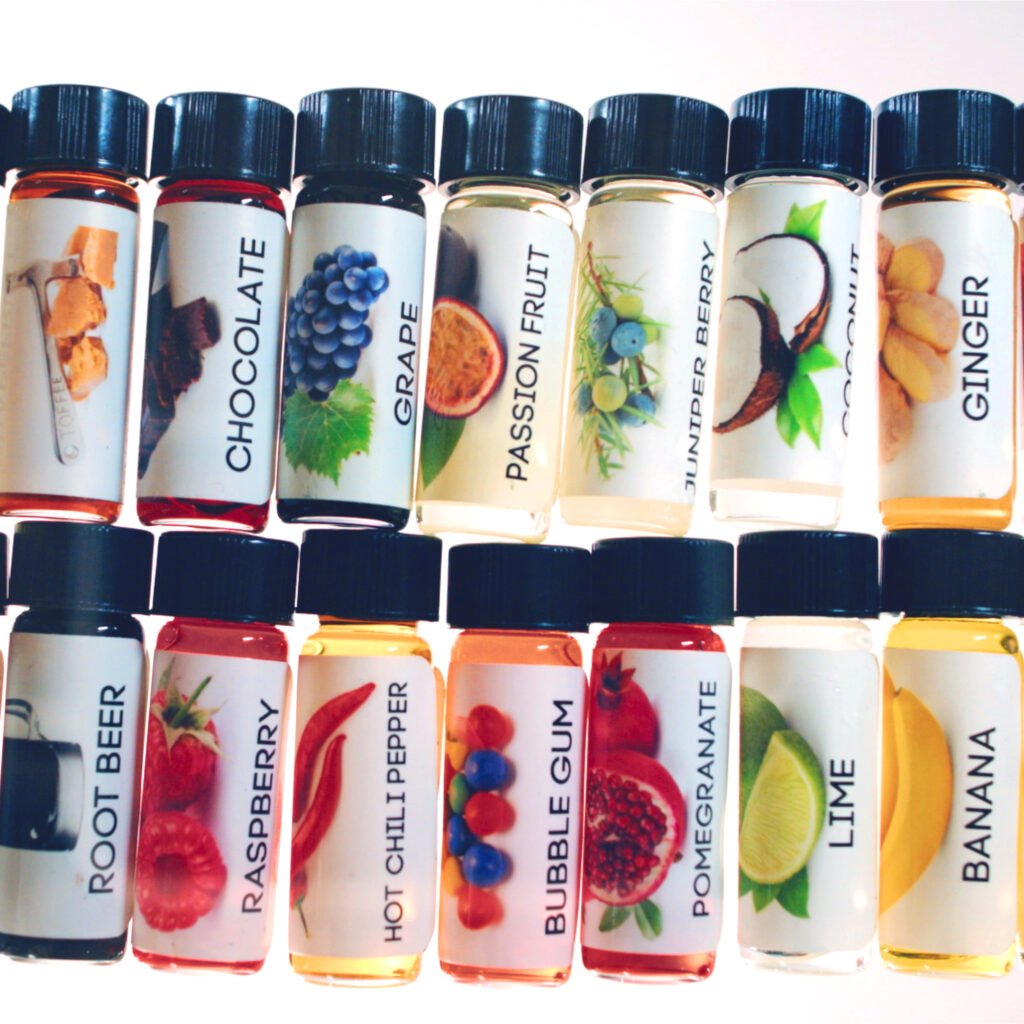
Flavor Drops
- 5x the intensity of other flavorings
- Flavor doesn’t change once heated
- Available in dozens of flavors
Emulsifiers
Polysorbate 80
Polysorbate 80 is a nonionic surfactant and emulsifier derived from polyethoxylated sorbitan and oleic acid, and is often used in foods. It can be used as a foaming agent to make spumas or airs. It is also added as an emulsifier in foods, particularly in ice cream, where polysorbate is added to up to 0.5% concentration to make the ice cream smoother and easier to handle, as well as increasing its resistance to melting. Polysorbate prevents milk proteins from completely coating the fat droplets. This allows them to join together in chains and nets, which hold air in the mixture, and provide a firmer texture that holds its shape as the ice cream melts.
Warning: If you are using polysorbate in any food application, make sure you the using food grade version sold here. Do not buy cheaper cosmetic grade which is widely available for use in soaps and other beauty applications.
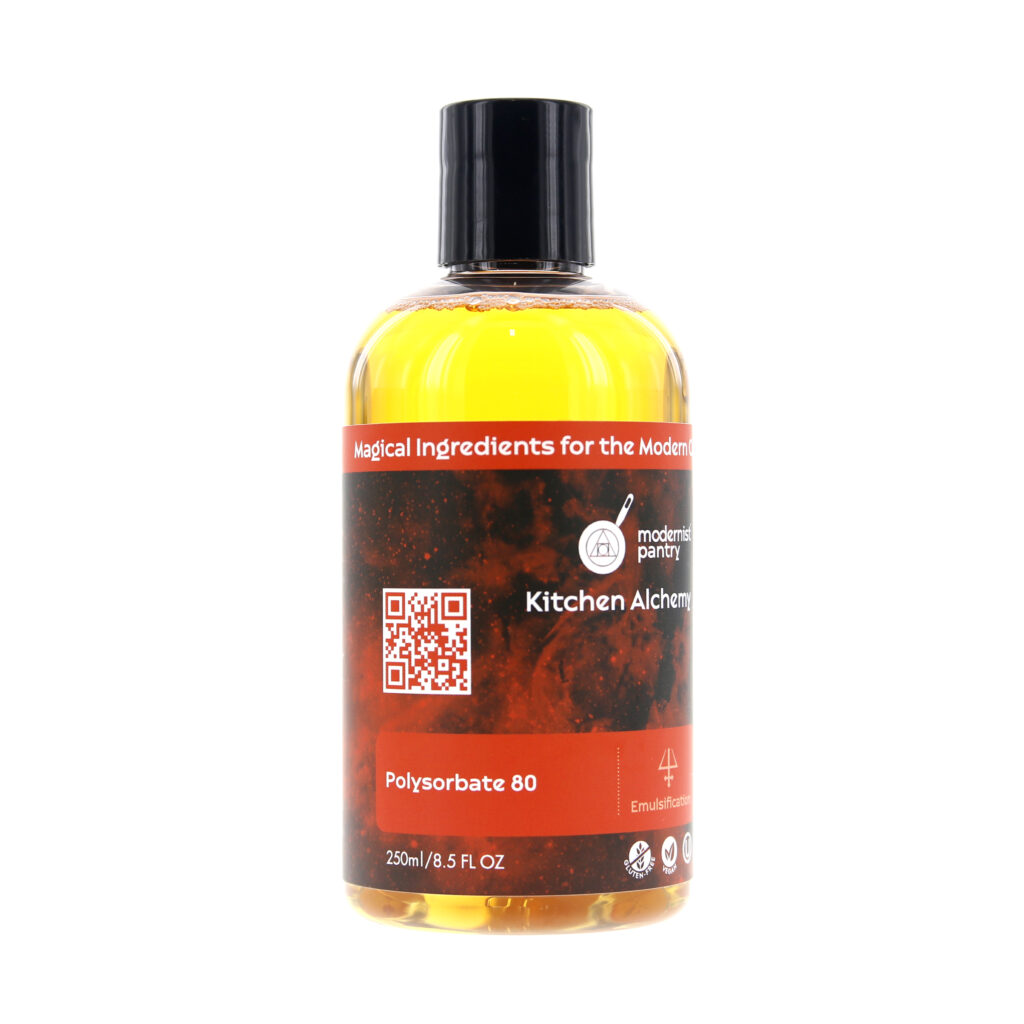
Polysorbate 80
- Sourced from corn
- Potent emulsifier for dressings, ice creams and much more
- Foams liquids to make spumas and airs
- Increases ice cream’s resistance to melting
Liquid Soy Lecithin
A natural phospholipid from soybean, Liquid Soy Lecithin (E322) is an emulsifying agent that helps fat and water stay together. It is often added to foods, such as chocolate, cheese, margarine, and salad dressing. It has health benefits such as reducing cholesterol level. Liquid Soy Lecithin is very viscous compared to powdered soy lecithin.
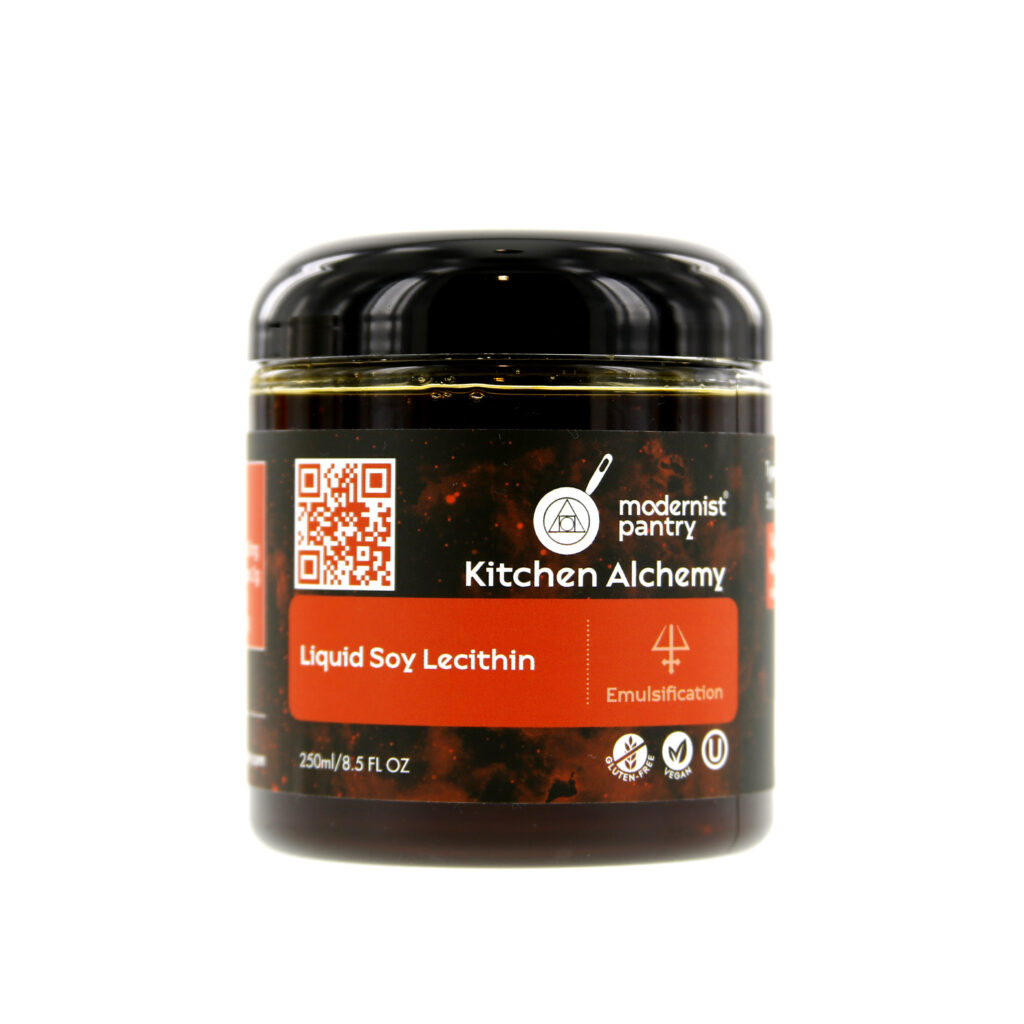
Liquid Soy Lecithin
- Phospholipid from soybeans
- Great for chocolate, cheese, margarine, dressings
- All purpose emulsifier, HLB approximately 4
- Cold/hot soluble, medium viscosity
Liquid Sunflower Lecithin
Liquid Sunflower Lecithin is a viscous emulsifier derived from sunflower seeds and contains a characteristic flavor profile and aroma. Lecithin is a fatty element found in the phospholipid portion of cells in the body and various plants such as sunflowers. Organic sunflower lecithin is widely used in culinary and baking applications due to its emulsifying and antioxidant properties. It helps create a homogeneous mass when making foods such as chocolate, ice cream, processed cheeses and salad dressing.
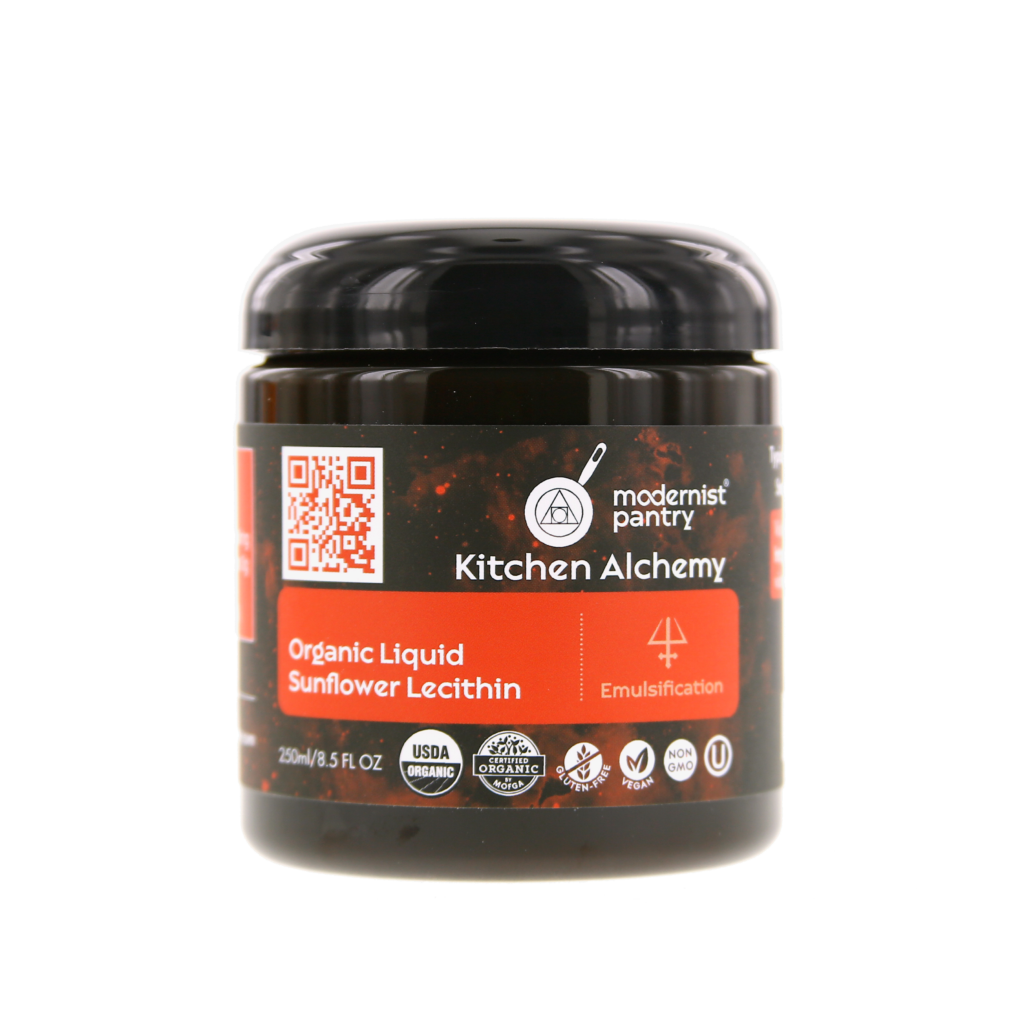
Liquid Sunflower Lecithin
- Organic liquid sunflower lecithin without any additives
- Acts as a powerful emulsifier for oil/fat-based emulsions
- Perfect substitute for liquid soy lecithin – replace using a 1:1 ratio
- Appropriate for baking, chocolate making, ice creams, dressings, etc.

